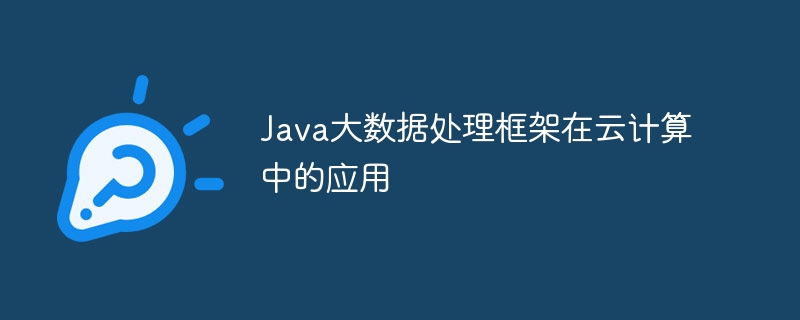
Combining big data processing frameworks (such as Apache Hadoop, Apache Spark) with cloud computing platforms (such as AWS, Azure, GCP) provides a powerful solution for processing massive data. Benefits of this combination include scalability, flexibility, cost-efficiency, management simplification and innovation acceleration. The hands-on case shows code examples for using Apache Spark to process social media data on AWS.

Application of Java big data processing framework in cloud computing
Introduction
Big data Processing frameworks are technologies used to process large data sets, while cloud computing provides scalable and on-demand computing resources. Combining big data processing frameworks with cloud computing can provide organizations with powerful and flexible solutions for processing and analyzing huge amounts of data.
Common big data processing framework
Cloud Computing Platform
Practical case
Using Apache Spark to process social media data on AWS
Steps:
Code sample:
import org.apache.spark.sql.SparkSession;
import org.apache.spark.sql.Dataset;
public class SocialMediaAnalysis {
public static void main(String[] args) {
// 创建 SparkSession
SparkSession spark = SparkSession.builder()
.appName("Social Media Analysis")
.config("spark.sql.warehouse.dir", "s3://my-bucket/warehouse")
.getOrCreate();
// 从 S3 加载数据
Dataset<Row> df = spark.read()
.format("csv")
.option("header", "true")
.option("inferSchema", "true")
.load("s3://my-bucket/social_media_data.csv");
// 分析数据
df = df.filter(df.col("sentiment").equalTo("positive"));
df.groupBy("user_id").count().show();
// 将结果存储回 S3
df.write()
.format("csv")
.option("header", "true")
.save("s3://my-bucket/positive_tweets.csv");
}
}Advantages
Combining the big data processing framework with cloud computing brings The advantages include:
The above is the detailed content of Application of Java big data processing framework in cloud computing. For more information, please follow other related articles on the PHP Chinese website!
